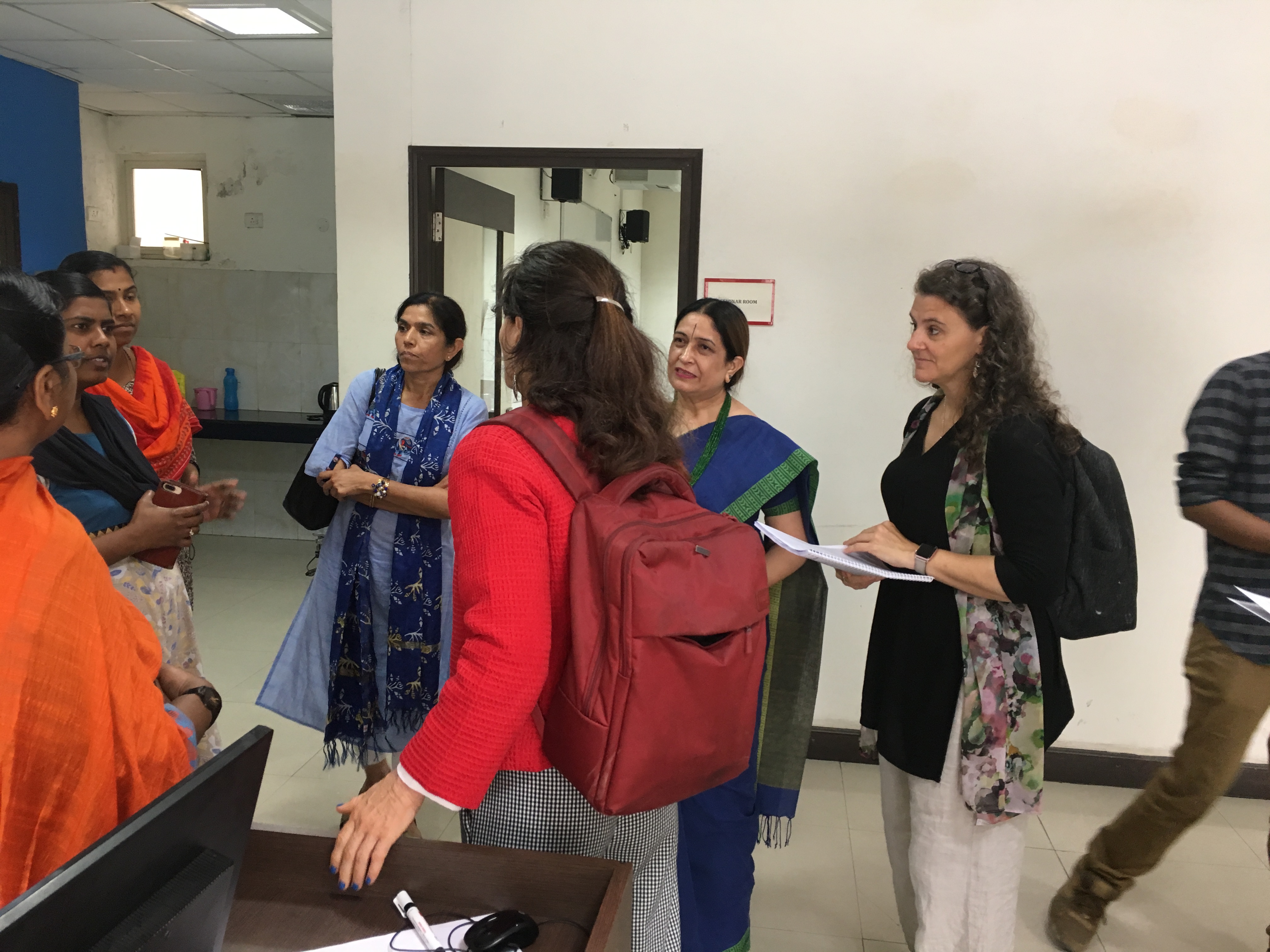 Professionalizing Midwifery to Meet International Standards
Addressing common challenges in strengthening and upgrading the midwifery profession to meet international standards
Professionalizing Midwifery to Meet International Standards
Addressing common challenges in strengthening and upgrading the midwifery profession to meet international standards

Challenges
Midwives save lives. Well trained midwives could help avert roughly two-thirds of all maternal and newborn deaths. They could also deliver 87% of all essential sexual, reproductive, maternal and newborn health services. Yet only 42% of people with midwifery skills work in the 73 countries where more than 90% of all maternal and newborn deaths and stillbirths occur.
United Nations Population Fund (UNFPA) country offices around the world support programmes to engage or strengthen the midwifery cadre. Bangladesh’s unique comprehensive approach and commitment to international midwifery standards has resulted in the country being recognized as a knowledge resource in this field. With UNFPA support, India has reached out to Bangladesh for a rapid snapshot analysis of ways to strengthen the role of midwives in India’s health system and how better to optimize the impact of maternal health programmes. In the past, India has struggled to introduce skilled birth attendants (SBA) and maternity care providers to improve the quality of maternal and newborn health care. The Government of India has expressed full commitment to a nationwide comprehensive programme that puts midwives in the forefront of service delivery especially at community levels.
Towards a Solution
Since 2019, UNFPA Bangladesh and UNFPA India have been sharing lessons on how to strengthen the path to developing midwifery as a profession. The partnership is active although there are no major ongoing activities. The partners have reviewed its status and currently exploring prospects of further support from JHPIEGO.
The project aimed to assist India in identifying common barriers and challenges to strengthening and upgrading the midwifery profession in the country. The Government of Bangladesh, through the support of UNFPA Bangladesh, graduated the first International Confederation of Midwives (ICM) standard 3-year direct entry midwives in 2015. Since then, over 4,000 midwives have graduated and over 1,100 are currently deployed. Additionally, 41 public schools are now also offering the government approved course. The programme adheres to ICM’s three pillars of professionalism, namely: Education, Regulation and Association.
This successful programme also includes a newly approved accreditation process, as well as faculty mentoring. The snapshot analysis provided guidance to the collaboration which also brought together important stakeholders, including the Ministry of Health staff, the professional association, educational centres, funding institutions and other development partners. Counterparts in Bangladesh were also invited to attend and share their story during the National Consultation on the Roadmap for Midwifery held in India. This opportunity also provided Bangladesh with a broader understanding of India’s overall approach to midwifery.
The knowledge sharing included the deployment of two international midwives to India who have been deeply engaged in the Bangladesh project. This allowed for a quick overview of possible bottlenecks and clarity on the midwives’ scope of practice especially during emergencies. It also facilitated the work between nurses and doctors so they can operate in a more cooperative, not competitive relationship and environment. Efforts to replicate this approach may include mentoring midwives at clinical sites and midwifery educators in their educational institutions. This collaboration has greatly helped India to redirect and prioritize its resources for its midwifery programme.
This type of experience sharing has enabled the introduction of midwives on a nationwide scale over a short time period through international and multi-agency support. Since the initial consultation in Aug 2019, India has reached out a few times to colleagues in Bangladesh to continue the exchange and networking. The Government of India’s commitment to its national midwifery education program is big – with plans to educate over 80,000 midwives in the next few years.
As many countries are currently working on midwifery projects, the replication of this SSC could benefit the UNFPA system globally. By mobilizing a core group of midwifery experts who have strong clinical backgrounds and an intimate understanding of country contexts, countries can be assisted immediately in their rapid assessments. Ideally, this could be done, with UNFPA support especially during the formulation of country programmes. This will optimize the sharing and wider application of a particular country’s proven experiences and expertise, and hasten national capacity building. This collaboration has demonstrated the significant role of trained midwives in advancing maternal health.
Contact Information
Countries involved
Supported by
Implementing Entities
Project Status
Project Period
Primary SDG
Secondary SDGs
Similar Solutions
| NAME OF SOLUTION | Countries | SDG | Project Status | |
|---|---|---|---|---|
360-Degree Awareness Tool to Fight COVID-19 Raising awareness and ensuring public wellbeing through a one-stop platform for fighting COVID-19 in Bangladesh |
Bangladesh, India | 16 - Peace and Justice Strong Institutions | Ongoing | View Details |
A Billion Brains: Smarter Children, Healthier Economies High Level Meeting on South-South Cooperation for Child Rights |
Bangladesh, India | 17 - Partnerships for the Goals | Completed | View Details |
A-Card Initiative |
Bangladesh, India | 10 - Reduced Inequalities | Completed | View Details |
Accelerating Digital Transformation in All Ministries in Bangladesh Promoting the rapid design and implementation of plans to digitize all ministries and subordinate government institutions in Bangladesh |
Bangladesh, India | 10 - Reduced Inequalities | Ongoing | View Details |
Accelerating the Implementation of African Union Treaties in São Tomé and Príncipe South-South learning from the Beninese judicial system’s experience in the application of human rights treaties to its national law |
Bangladesh, India | 05 - Gender Equality | Completed | View Details |
